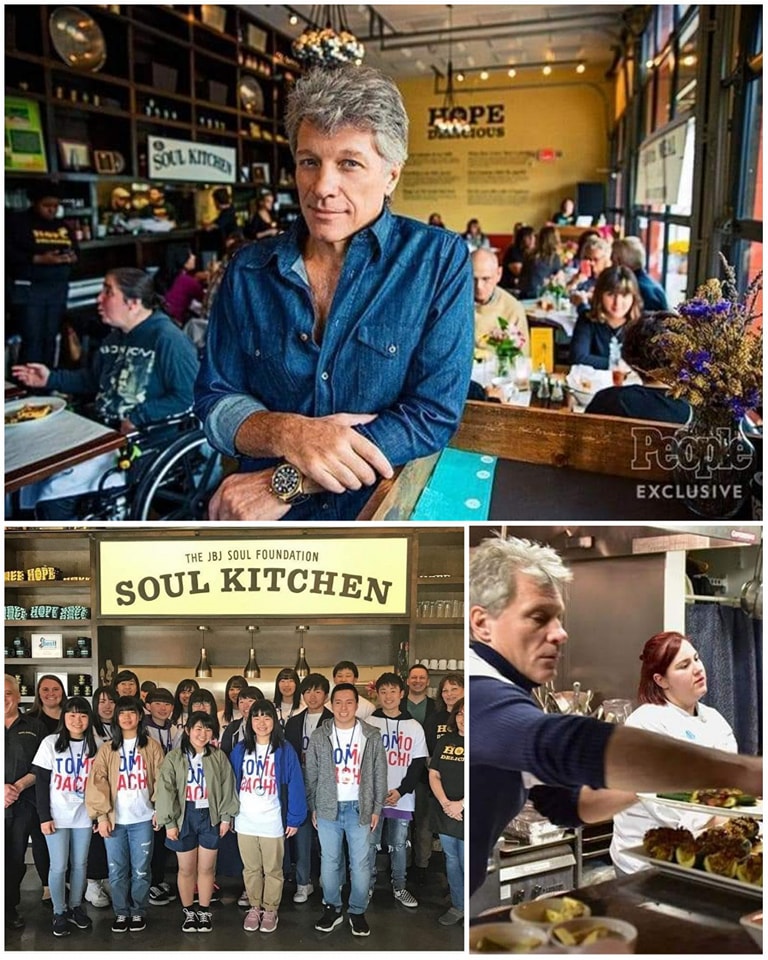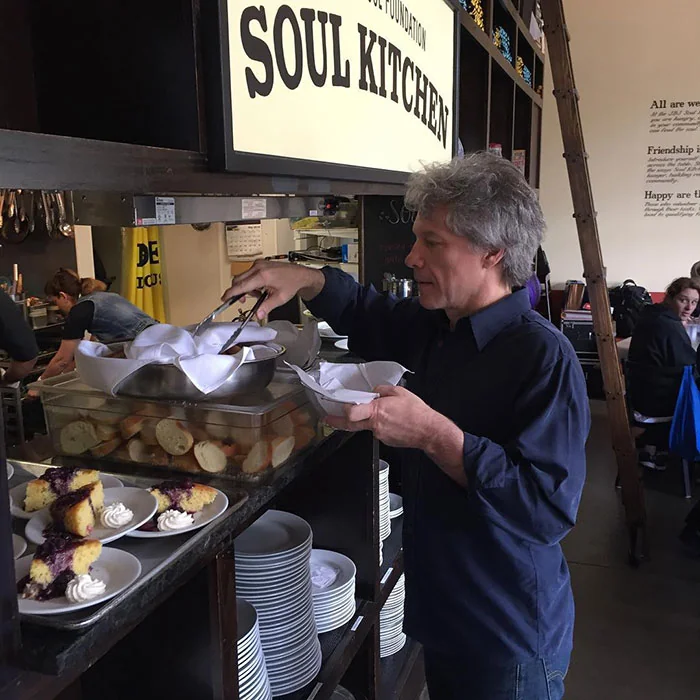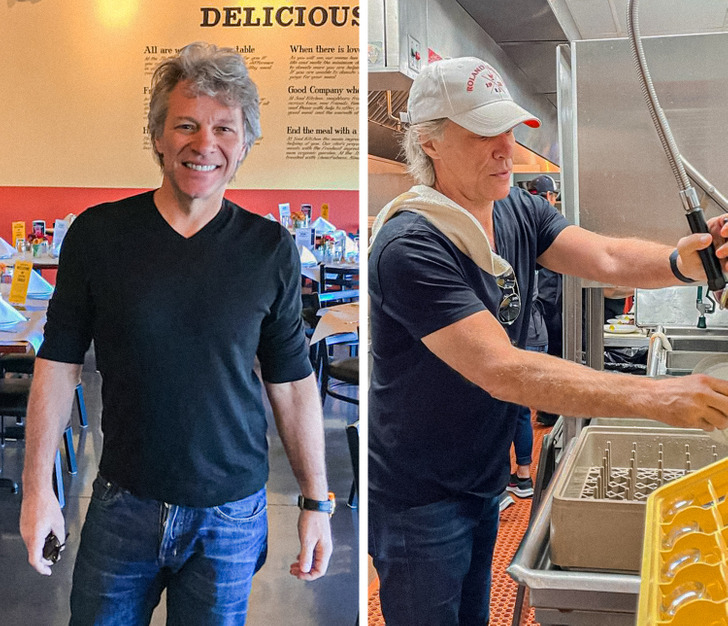Jon Bon Jovi, the legendary rock star known for his hit songs and charismatic performances, has done something that not many people know about — and it’s far from the glitzy world of rock ‘n’ roll. In an unexpected move, Bon Jovi opened four community restaurants across the United States that serve food for free to those in need.
His initiative, called “JBJ Soul Kitchen,” is a nonprofit restaurant project that doesn’t have a set price on its menu. Instead, diners are encouraged to “pay what they can” or even volunteer their time in exchange for a meal. The idea behind these restaurants is to offer a dignified dining experience to people who are struggling financially, ensuring that no one has to go hungry due to their circumstances.

In a world where poverty is often hidden and homelessness can be overlooked, Jon Bon Jovi’s project stands as a beacon of compassion. The restaurants are run like any other restaurant, with high-quality, fresh food served to everyone — regardless of their ability to pay. People can also help by volunteering, thereby contributing to the mission of creating a community-based model where everyone has the opportunity to dine with respect and dignity.
The Story Behind It
So, why did Jon Bon Jovi start these community restaurants? It all began with a deeply personal experience. Bon Jovi saw the growing divide in wealth and the struggles that many people face in his home state of New Jersey. In 2011, he wanted to create a solution that went beyond just giving out food or temporary aid. Instead, he wanted to create a model that restored hope and empowered people to change their own lives.

His first JBJ Soul Kitchen opened in Red Bank, New Jersey, and since then, more have followed in places like Toms River, and there are plans for others. In every case, these community spaces have become more than just places to eat. They’ve become hubs of social change where individuals connect, share stories, and help one another.
Bon Jovi’s mission goes beyond just feeding people — it’s about rebuilding communities, one meal at a time. And while it’s easy to think of celebrities only for their glitzy public personas, Bon Jovi’s work reminds us that behind the fame, there are people who truly care and are using their platforms to make a tangible difference in the world.

The lesson here is that true wealth is not in how much you have, but in how much you give. In a world where many are often left behind, a small act of kindness can ripple out and change lives. Jon Bon Jovi’s community restaurants show us that charity isn’t just about handouts — it’s about respect, empowerment, and community. Sometimes, giving means creating a place where people can sit down and share a meal together, regardless of their circumstances.
